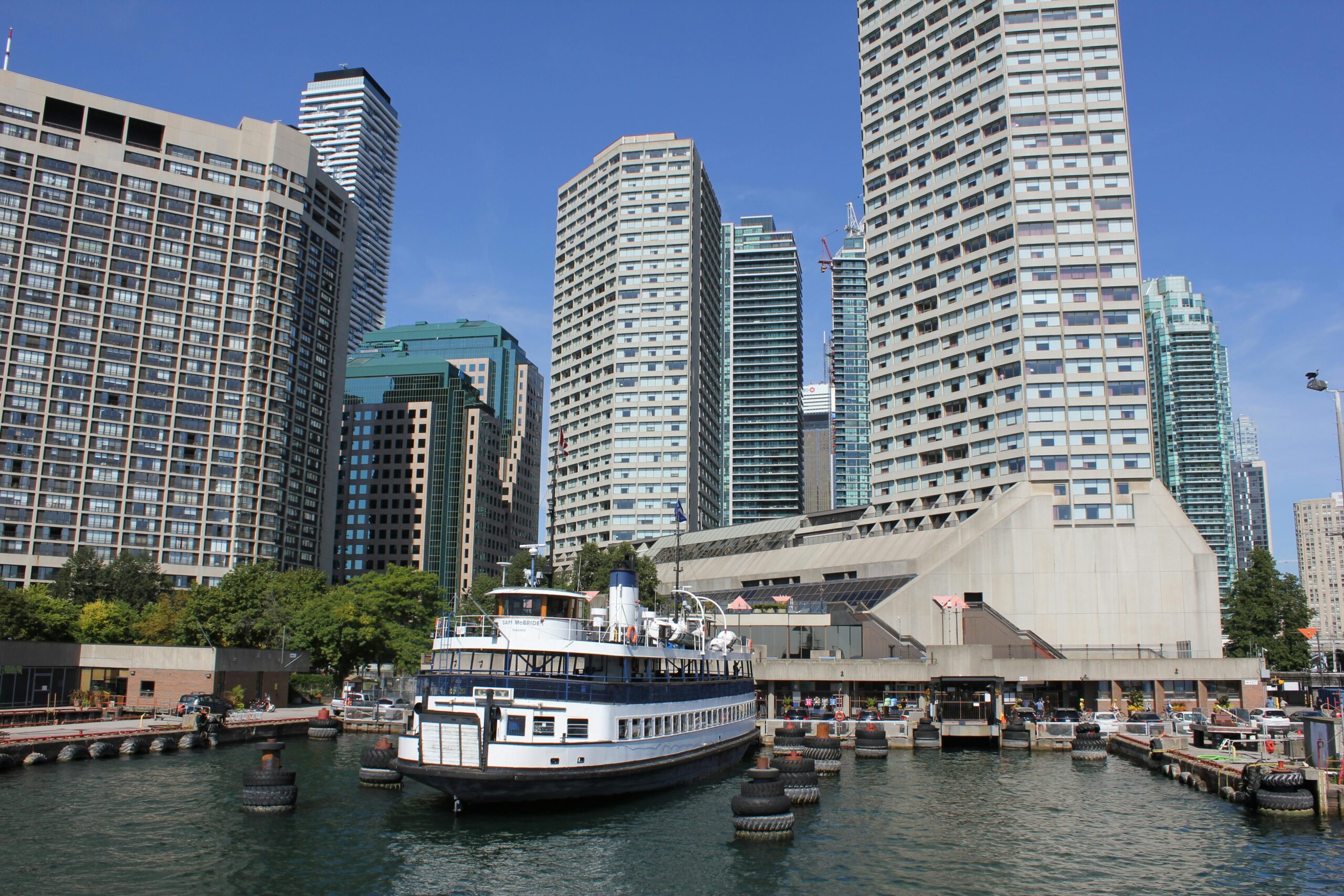Table of Contents
- The Shifting Sands: Navigating Canadian Immigration’s New Realities for Students
- The Post-Graduation Work Permit (PGWP): A Critical Bridge in a Competitive Climate
- Maximizing Your CRS Score: An Indispensable Strategy for Aspiring Immigrants
- Provincial Nominee Programs (PNPs): The Essential Alternative Route to Permanent Residency
- Frequently Asked Questions
The Shifting Sands: Navigating Canadian Immigration’s New Realities for Students
For years, the path for international students in Canada seemed straightforward: study at a Designated Learning Institution (DLI), obtain a Post-Graduation Work Permit (PGWP), gain skilled Canadian work experience, and apply for permanent residency (PR). This well-trodden route, often called the ‘study-work-immigrate’ pathway, has been a cornerstone of Canada’s immigration strategy. However, the landscape in 2025 has evolved dramatically, presenting new challenges that require meticulous planning and a sophisticated strategy. The dream of Canadian PR is far from over for international graduates, but the journey is undeniably more complex and competitive. The central question many are asking is whether this pathway remains a genuinely viable option. The answer is a qualified yes—but success now depends on a deeper understanding of the system’s new priorities.
The most significant change has been the evolution of the Express Entry system. Historically, high Comprehensive Ranking System (CRS) scores in all-program draws were the primary gatekeepers. Today, while high scores remain important, Immigration, Refugees and Citizenship Canada (IRCC) has pivoted towards category-based selection draws. These draws specifically target candidates with experience in in-demand sectors like healthcare, STEM (Science, Technology, Engineering, and Mathematics), trades, transport, and agriculture, or those with strong French-language proficiency. For an international graduate whose Canadian work experience falls outside these targeted categories, receiving an Invitation to Apply (ITA) through a general draw has become exceptionally difficult due to consistently high CRS score cut-offs. This shift forces prospective immigrants to be more strategic not only in their field of study but also in the type of work experience they pursue after graduation.
The Post-Graduation Work Permit (PGWP): A Critical Bridge in a Competitive Climate
The Post-Graduation Work Permit remains the most crucial tool for international graduates transitioning from student to worker. This open work permit allows graduates of eligible Canadian DLIs to gain valuable Canadian work experience, which is a key requirement for most economic immigration programs, including the Canadian Experience Class (CEC). However, it’s essential to understand what the PGWP is—and what it is not. It is not a direct path to PR, nor is it guaranteed. Recent policy shifts have tightened eligibility, notably impacting students in certain public-private partnership college programs. It is imperative for prospective students to verify that their chosen program and institution make them eligible for a PGWP upon graduation.
The duration of a PGWP is directly tied to the length of the academic program, up to a maximum of three years. This finite timeframe creates a sense of urgency. Graduates must secure skilled employment (classified under National Occupational Classification TEER 0, 1, 2, or 3) and accumulate at least one year of experience to even become eligible for the CEC pool. In the current competitive environment, one year of experience may not be enough to yield a competitive CRS score. This means graduates are in a race against time to gain sufficient experience, improve language scores, and explore other avenues like Provincial Nominee Programs (PNPs) before their temporary status expires. The PGWP is best viewed as a temporary bridge, and crossing it successfully requires a clear and proactive immigration plan from the moment it is issued.
Maximizing Your CRS Score: An Indispensable Strategy for Aspiring Immigrants
With the CRS cut-off scores for all-program draws frequently hovering at challenging levels, passively waiting for an ITA is no longer a viable strategy. International graduates must actively work to maximize every possible point on their profile. The Comprehensive Ranking System evaluates candidates on a range of human capital factors, and understanding how to optimize each component is the key to gaining a competitive edge. This is not merely about meeting minimum requirements; it is about excelling in every category to stand out in a crowded pool of highly qualified candidates.
A proactive approach to boosting a CRS score involves several key actions. Firstly, language proficiency is paramount. Achieving a Canadian Language Benchmark (CLB) level of 9 or higher in all four abilities (reading, writing, listening, speaking) provides a significant point boost. Many graduates should consider retaking their IELTS or CELPIP tests to aim for these higher scores. Secondly, strong French-language skills are now a game-changer, offering substantial bonus points that can elevate a profile above the competition. Thirdly, while one year of Canadian work experience is the minimum for CEC, accumulating two or even three years of skilled work experience will add more points. Finally, education points can be increased by obtaining a second credential, such as a one-year post-graduate certificate after completing a bachelor’s degree. Each of these steps requires foresight and investment, but in the current climate, they are often essential for success.
Key Strategies for Boosting Your CRS Score:
- Enhance Language Proficiency: Aim for CLB 9 or higher on your English test (IELTS/CELPIP). Even a small improvement can result in a significant point increase.
- Learn French: Acquiring even moderate French language skills can add a substantial number of bonus points to your Express Entry profile, making it one of the most powerful differentiators.
- Gain More Work Experience: While one year of skilled Canadian work experience is the minimum to qualify for the Canadian Experience Class, gaining two or more years will increase your CRS score.
- Pursue Further Education: Completing a second Canadian credential (e.g., a post-graduate diploma or certificate) can award additional points for education.
- Explore Provincial Nominee Programs: Securing a provincial nomination is the single most effective way to boost your score, adding 600 points and virtually guaranteeing an Invitation to Apply.
Provincial Nominee Programs (PNPs): The Essential Alternative Route to Permanent Residency
When the federal Express Entry system seems insurmountable, Provincial Nominee Programs (PNPs) offer a powerful and often more accessible pathway to permanent residency. Each province and territory (except Quebec and Nunavut) operates its own PNP with various streams designed to meet its specific economic and demographic needs. Many of these streams are specifically tailored for international graduates who have studied and/or worked in that particular province. This makes the initial choice of where to study in Canada more critical than ever before. Prospective students should research the PNP streams of different provinces before even applying to a Canadian institution.
PNPs can operate in two ways. Some streams are ‘enhanced,’ meaning they are aligned with the Express Entry system. Candidates who receive a nomination from an enhanced stream are awarded an additional 600 CRS points, which effectively guarantees they will receive an ITA in a subsequent draw. Other streams are ‘base’ nominations, where candidates apply directly to the province and, if successful, then submit a separate paper-based or online application for permanent residency to IRCC. For international graduates, popular streams include those that do not require a job offer (e.g., Ontario’s Masters and PhD Graduate streams) or those that have lower work experience requirements than federal programs. By aligning their studies and post-graduation employment with the needs of a specific province, international graduates can significantly increase their chances of securing a nomination and, ultimately, Canadian permanent residency.
Frequently Asked Questions
What is the Comprehensive Ranking System (CRS)?
The Comprehensive Ranking System (CRS) is a points-based system used by the Canadian government to assess and score candidates in the Express Entry pool. Points are awarded based on factors like age, education, language proficiency in English and/or French, and skilled work experience. A candidate’s total CRS score determines their rank in the pool, and those with scores above the cut-off in a particular draw are invited to apply for permanent residency.
How does a Provincial Nominee Program (PNP) help with permanent residency?
A Provincial Nominee Program (PNP) allows Canadian provinces and territories to nominate individuals for permanent residency who have the skills and experience to contribute to their local economy. Securing a nomination from a PNP stream aligned with Express Entry adds 600 points to a candidate’s CRS score, which almost guarantees they will receive an Invitation to Apply (ITA) for PR. Other PNP streams allow for a direct application for permanent residency outside of the Express Entry system.
What is a Post-Graduation Work Permit (PGWP)?
A Post-Graduation Work Permit (PGWP) is an open work permit available to eligible international students who have graduated from a Designated Learning Institution (DLI) in Canada. It allows graduates to work for any employer anywhere in Canada for a period of up to three years, depending on the length of their study program. The PGWP is critical for gaining the Canadian work experience needed to qualify for many permanent residency pathways.
Why is French proficiency becoming more important for Canadian immigration?
French proficiency has become increasingly important because the Canadian government is focused on supporting Francophone communities across the country. In the Express Entry system, candidates with strong French language skills receive a significant number of bonus CRS points. Furthermore, IRCC now conducts category-based draws specifically targeting candidates with proven French proficiency, often with much lower CRS score requirements than general draws.
Talk to us to find out more. ->
The content above is not intended to provide legal advice or opinions of any kind and may not be used for professional or commercial purposes.







